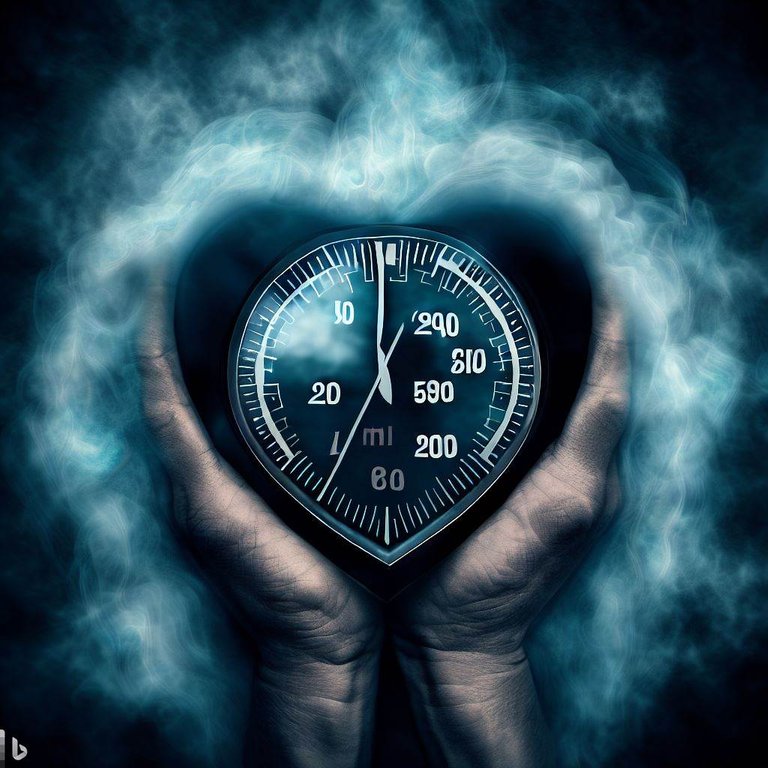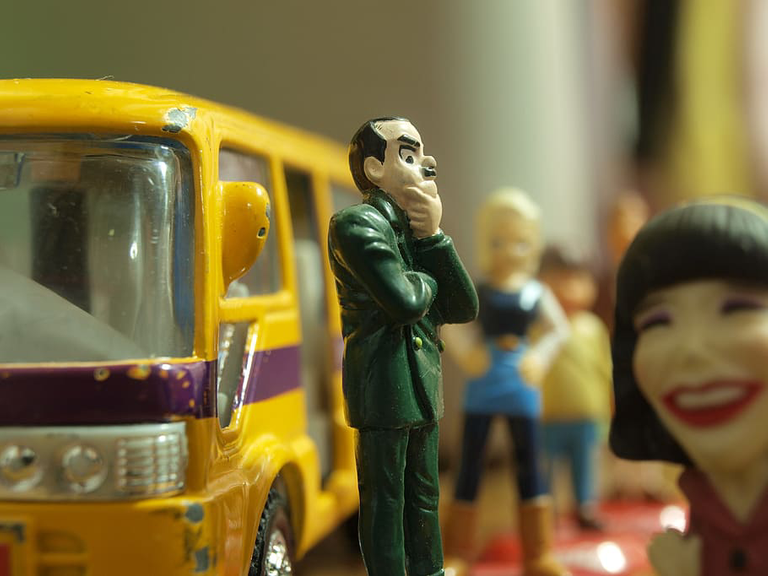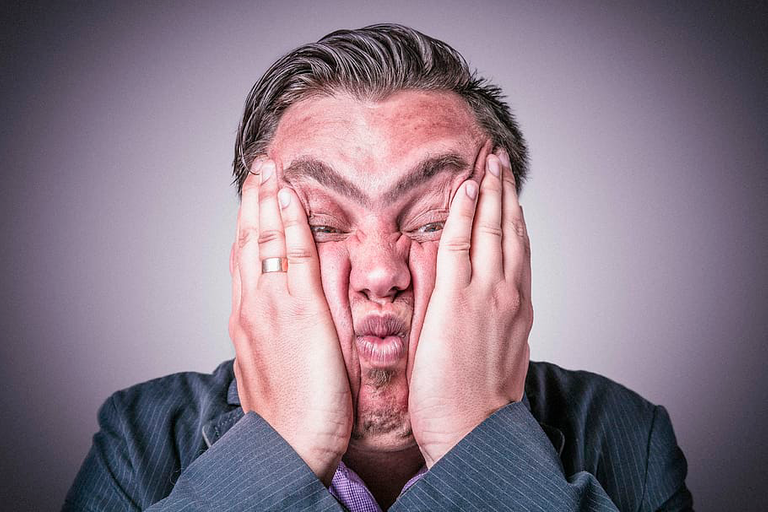Exploring the Impact of Anxiety and High Blood Pressure in Today's World
Are you aware that anxiety and hypertension are on the increase in our society today? It's not a mishap. These two disorders have reached an alarmingly widespread prevalence in modern society, which is characterized by a rapid pace and an ongoing emphasis on connectivity. Why are anxiety and high blood pressure issues so prevalent today? In any case, that's why we came, so let's find out! The paper will go into the causes of these diseases and the fascinating correlation between anxiety and hypertension. Together, we'll raise awareness of this crucial topic and learn how to effectively treat and avoid these health issues. So take a cup of tea, settle down, and let's explore the enigma of anxiety and hypertension.
What is really anxiety
Let us now discuss anxiety. Everybody has gone through that at some time in their life, right? the apprehensive, anxious, restless mood that may make even the smallest chores appear difficult. But just what is anxiety?
Being a bit uneasy before a major presentation or a first date is a kind of anxiety, though. It's a pervasive, overpowering anxiety or worry that can interfere with our day-to-day activities. There are several symptoms associated with it, including a fast heartbeat, perspiration, racing thoughts, and even difficulty breathing. It seems as though your body and mind are permanently in a state of alarm.
Now, why is it that so many individuals nowadays experience anxiety? Several elements are at work. Undoubtedly, a significant factor is the way we live now. Our civilization moves so quickly that we are always inundated with stimuli and demands. Our mental health may suffer as a result of the pressure to succeed, the fear of losing out, and the continual comparison on social media.
Oh, and don't overlook the advances in technology. They certainly have their advantages, but they also keep us constantly connected. We're engrossed in our displays and learning things at an unparalleled velocity. It seems like our minds are always working, which may make us feel stressed and overburdened.
Not to mention the pressures tied to the economy and our jobs that so many of us experience. Long work days, a competitive job market, and the continual pressure to succeed can all contribute to anxiety.
The truth is that anxiety has an impact on more than just our mental health. Our physical health can also be significantly impacted by it, especially in terms of blood pressure.
You see, anxiety and high blood pressure frequently coexist. Our bodies release cortisol and other stress chemicals in response to anxiety, which can narrow our blood vessels and increase heart rate. This may eventually result in elevated blood pressure levels.
So there you have a little introduction to anxiety. It's a complicated disorder that has an impact on a lot of different elements of our life; it's not just a transitory sense of anxiety. But don't worry, in the next section, we'll go into more detail on the relationship between anxiety and high blood pressure. Remain tuned!
What is high blood pressure?

From Bing
Okay, let's talk about hypertension, which is another name for high blood pressure. What precisely does it signify if you've heard about it before?
The force that your blood applies to the walls of your arteries as it travels through them is what is referred to as excessive blood pressure. It is comparable to the pressure created when a water faucet is turned on within a pipe. Now, for blood to circulate normally and give oxygen and nutrients to your body, a particular degree of pressure is required. However, when that pressure is consistently too high, it might result in some major health problems.
Why is high blood pressure important, then? Well, it poses a large danger for a number of illnesses, such as renal issues, heart disease, and stroke. It is sometimes referred to as the "silent killer" since its symptoms frequently do not become apparent until it has reached hazardous levels. This is why it's so important to monitor your blood pressure and take precautions.
What causes high blood pressure, then? Several elements are at work. First, the way we live can have a significant influence. You know, factors like our eating habits, degree of exercise, and whether or not we smoke. Our chance of acquiring high blood pressure can be boosted by smoking, eating too much salt, and not exercising enough.
Additionally, genetics and family history are important. You may be more prone to developing high blood pressure if your parents or other close family members do. Another element is age; the risk tends to rise with age. High blood pressure can also be caused by certain medical disorders such as diabetes, renal illness, and hormone abnormalities.
However, there is an intriguing relationship here: stress. Yes, stress may have a significant role in high blood pressure. Our bodies create adrenaline and other stress-related chemicals, which briefly increase blood pressure. And if we are under ongoing stress, those brief surges might become chronic, resulting in enduring high blood pressure.
Therefore, knowing the significance of maintaining appropriate blood pressure levels and pinpointing the numerous elements that may lead to its emergence are key to comprehending high blood pressure. Though there are techniques to manage and regulate it, don't worry. In the next section, we'll go more into it. Remain tuned!
Hold on, how are they connected?
You know, it's interesting how high blood pressure and anxiety are related. Right, we just discussed how stress may increase blood pressure. Anxiety, on the other hand, is a significant cause of stress in our lives and can have an immediate effect on blood pressure levels.
Our bodies enter this state of increased attentiveness when we are anxious. Our breathing becomes more rapid, our blood vessels tighten, and our hearts begin to race. This is due to the stress response mechanism in our bodies going into overdrive and producing chemicals like cortisol and adrenaline.
Now, as these stress hormones flood our bodies, they force the blood arteries in our bodies to constrict, which makes it more difficult for the blood to flow freely. Because of this, our hearts must work harder to pump blood, which raises blood pressure.
The fascinating thing is that, unlike a stressful incident, worry doesn't merely result in brief increases in blood pressure. Chronic anxiety sufferers may experience prolonged bouts of high blood pressure. Because chronically high blood pressure strains our cardiovascular system and raises the risk of heart disease and stroke, this can be very alarming.
But there's another twist in the tale: high blood pressure and anxiety can spiral out of control. You see, having high blood pressure can really cause anxiety or exacerbate preexisting anxiety. High blood pressure-related anxiety can exacerbate the symptoms of anxiety, generating a negative feedback loop between the two.
Therefore, it is evident that there is a complex link between anxiety and high blood pressure. They can both have an impact on and aggravate one another. Because of this, balancing both components is essential for maintaining our general health and well-being.
We'll look at some lifestyle modifications and management techniques for anxiety and high blood pressure in the section after this. Keep checking back because there is a ton of exciting stuff coming!
Let's talk about modifying our lifestyle to control anxiety and high blood pressure.

You know, altering your lifestyle may really make a lot of difference when it comes to controlling anxiety and high blood pressure. I know because I've been there, and making these modifications to my daily routine has completely changed how I feel.
Let's start by talking about exercise. Regular physical activity is beneficial for our mental health in addition to keeping our body in shape. Exercises like running, dancing, or walking produce endorphins, those wonderful feel-good hormones that improve our mood and reduce anxiety. Additionally, exercise strengthens our cardiovascular system and improves blood flow, both of which can aid in controlling high blood pressure. Make an enjoyable activity a regular component of your day.
Let's now talk about the value of a balanced diet. For both our physical and emotional well-being, providing our bodies with wholesome meals may be life-changing. Increase the amount of fresh produce, whole grains, lean meats, and healthy fats in your diet. Reduce your intake of processed meals and too much salt because they can raise your blood pressure. Oh, and remember to drink plenty of water! The key to keeping your blood pressure at a healthy level is to drink enough water.
Let's speak about another crucial lifestyle modification—managing stress—while we're on the topic of hydration. Utilizing mindfulness and relaxation methods is one efficient approach to do this. Spend some time each day engaging in yoga, meditation, or deep breathing techniques. It lowers blood pressure, calms the mind, and lessens anxiety. You won't believe how much a few minutes of focused breathing can improve your well-being.
Additionally, emphasize getting good sleep. Getting a good night's sleep is crucial for controlling both high blood pressure and anxiety. Each night, try to get seven to eight hours of good sleep. Set up a relaxing night ritual, such as reading a book or taking a warm bath. Make a distraction-free sleeping environment by removing technological devices. It sets the tone for a calmer day ahead when you wake up feeling rejuvenated.
Last but not least, social support has a lot of influence. To discuss your thoughts and experiences, reach out to close friends, family members, or even support groups. A robust support system may offer solace, direction, and comprehension during trying times.
Keep in mind that making these lifestyle adjustments is a journey toward greater health and well-being rather than a fast cure. Step-by-step, progressively incorporate them. Be nice to yourself and acknowledge even the little triumphs along the path. You are entitled to a peaceful and fulfilling existence.
In conclusion, it is obvious that anxiety and high blood pressure are widespread in today's culture. Our modern lifestyles are fast-paced and stressful, which has led to the emergence of these disorders and affected our mental and physical health. However, recognizing the link between anxiety and hypertension opens the door to more effective therapy and prevention.
Prioritizing stress-reduction methods like meditation, deep breathing, and relaxation exercises can also considerably lessen anxiety and help lower blood pressure. Maintaining our mental and emotional balance also heavily depends on getting enough sleep and receiving social support.
Keep in mind that controlling anxiety and high blood pressure is a process that calls for patience and tenacity. When necessary, it's essential to seek expert assistance since medical specialists may offer helpful advice and modify treatment regimens to meet our individual needs.
References
Hypertension and Anxiety: A Systematic Review and Meta-Analysis Study" from the Journal of Clinical Hypertension:
"The Association of Anxiety Disorders and Hypertension: A Systematic Review and Meta-Analysis" from the Annals of Behavioral Medicine:
"Hypertension and Anxiety Disorders: A Comprehensive Review" from the American Journal of Hypertension:
"Anxiety and high blood pressure: What's the connection?" from Mayo Clinic:
- Link: Mayo Clinic Article
"Hypertension and Anxiety Disorders: A Systematic Review and Meta-analysis" from the Journal of Hypertension:
"Association Between Anxiety and Hypertension: A Systematic Review and Meta-Analysis of Epidemiological Studies" from the Journal of Hypertension:



Thanks for your contribution to the STEMsocial community. Feel free to join us on discord to get to know the rest of us!
Please consider delegating to the @stemsocial account (85% of the curation rewards are returned).
You may also include @stemsocial as a beneficiary of the rewards of this post to get a stronger support.